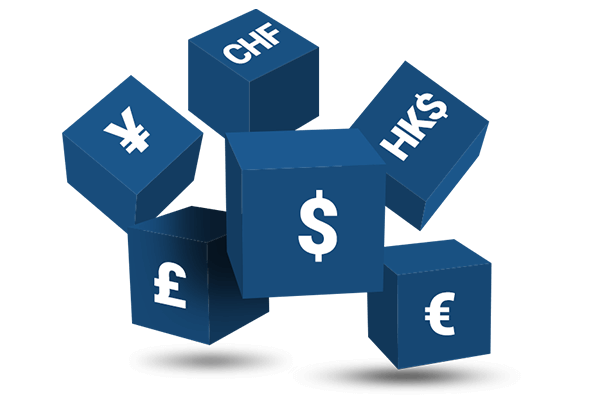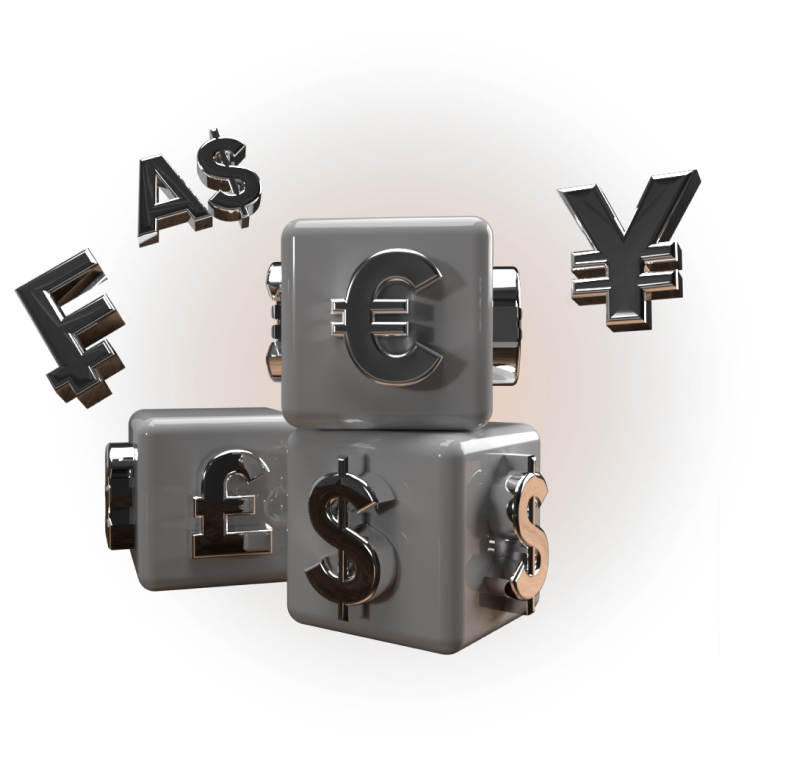Get your money back from Forex Trading Scams
Recover your Money
If you’ve been ripped off by scammers, get in touch and our team of experts will work to get your money back
Forex Scams: Recover Your Lost Funds

What is forex trading?
Forex is the single largest traded market globally, with up to five trillion traded each day and is considered decentralized because there is no central processor for trades– in other words, there is no entity that acts as a central exchange like the NASDAQ or the NYSE. Instead, orders are completed by millions of traders using millions of various forex brokers around the world.
Foreign currency trading is one of the most leveraged markets in the world as well. In the US, regulations limit a person to 50:1 leverage. In other countries, they have zero limits on leverage. It is not uncommon to see some non-US brokers offer 1000+:1. Due to these factors and a few others which we will discuss, this is why scams can be so prevalent within the foreign exchange market.


Is forex trading a scam?
In the investment world, forex is the wild-west of traditional financial instruments. However, most of the participants are massive institutions like banks that help companies manage cross-currency rates for payroll or buying goods. But it is by far the most accessible and cheapest investment for anyone to make. A futures broker may require a $5,000 minimum investment; whereas many firms in the foreign exchange markets require as little as $1. Day trading stocks in the US requires a $25,000 minimum balance; forex does not require this.
The ease of access to significant leverage, and the fact it is open 24 hours a day all make it the most appealing market. But this also attracts many of the bad actors. Some countries regulate forex markets – but not always to the same degree as the US. Many countries have little to no regulation and allow anyone to open a brokerage account in their country. There are many, many bad brokers around the globe – so it’s often best to stick with brokers that are based in the US, EU, or UK.
How to spot a forex scam
Broker withdrawal rules
You should be able to withdraw your money from your brokerage account at will – but some don’t allow this.
Avoid minimum requirements for volume traded before you can withdraw.
Avoid anyone that doesn’t disclose their withdrawal rules.
If a broker advertises a bonus on deposits, make sure that you can withdraw the bonus within a reasonable amount of time – it should be clear what the requirements are for you to withdraw the bonus.
Educational services
Be wary of the myriad of free or paid trading education opportunities
Many sites look incredibly professional and may even link certification organizations without their permission.
Check for quality educational providers from the CMT Association (Certified Market Technicians Association), IFTA (International Fellowship of Technical Analysts), or STA (Society of Technical Analysts).
Even by professional US brokers, a significant amount of the education provided is decades out of date.
Broker’s Leverage
The US and EU (more recently) have limits of around 50:1.
If you see a broker offering 500:1, 1000:1, or anything beyond a conservative amount, stay away. This is a predatory action.
Avoid any broker that is not clear about margin requirements.
Broker’s undisclosed parameters
Avoid requirements for a minimum Stop Loss or Profit Target
Avoid requirements where you must have a trade open for a certain amount of time before you can exit.
Avoid anyone that doesn’t allow you to create your own risk management profile.
Signal Sellers
Forex signal sellers are individuals who want to sell you signals or advice – they want to tell you what pairs to buy or short, when to exit for profit, where to put your stops, etc.
Millions of signal sellers out there are all selling you on their success with messages like, “3,000 pips a week!” – a pip is how you measure movement in the exchange rate. The average pip range that the EUR/USD moves a day can vary between 30 to 50 pips.
Avoid people or companies that promise or allude to a guarantee of profit. Avoid entities that promise unbelievable returns like: “90% win rate!” or “188 winning trades, 12 losing trades!” or “MASSIVE GAINS.”
How do I recover funds from a forex scam?
Recovering funds in the forex trading market is difficult. The difficulty increases when you use an unregulated broker. Adding to the problem is the near impossibility of recompense from the scammers who defrauded you.
But we at Regal-Resolve LTD have a proven track record of success in helping investors who have been the victims of a scam or fraud. We are a regulated fund recovery company that focuses on some of the more complicated financial investments: forex, binary options, cryptocurrency, and stocks.
In addition to our professional forex recovery services, our team of experts focuses on customer outreach and we attempt to mitigate the damage that fraudulent actors have caused to our clients.
Contact us today for a free consultation and our professionals will work with you throughout the entire process to get you maximum returns!

Forex Scam FAQ
No – but there are scams and fraudsters that create pyramid schemes. This kind of behavior exists everywhere and is endemic to all traded financial markets. If you are looking for a broker and they’re offering to put you into a ‘team’ to build a network, odds are it’s a pyramid scheme.
Several major regulatory bodies/agencies around the globe regulate forex markets. In the US, brokers are regulated by the NFA (National Futures Association) and the CFTC (Commodities Futures Trade Commission) – but not FINRA (Financial Industry Regulatory Authority). In the UK, the main regulatory body is the FCA (Financial Conduct Authority). In the EU, all nations that make up the EU have their respective regulatory agency– but the standards that each member State must maintain are established in the MiFID (Markets in Financial Instruments Directive).
Great question! One of the first signs that the broker you are looking at is legitimate is if they disclose that they are registered with a specific regulatory authority such as the FCA (UK) or CFTC (US). Another great way to determine legitimacy is to read reviews by current and former customers.
